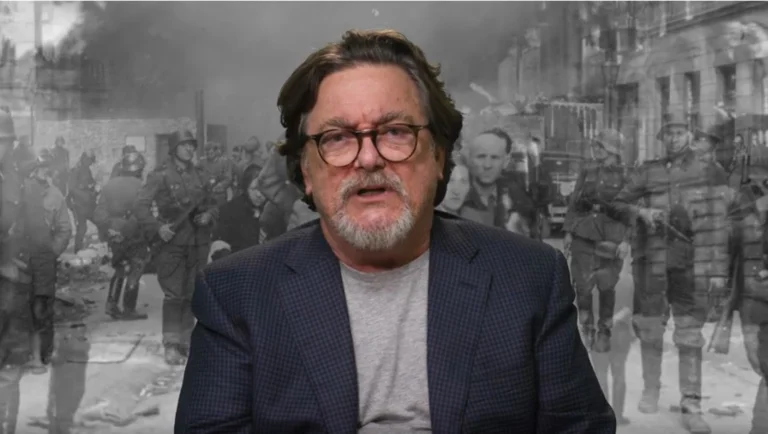Former U.S. President and 2024 re-election winner Donald Trump is making waves again, this time with a bold proposal that’s ruffling feathers in Hollywood: a 100% tariff on films made outside the United States. But not everyone in the entertainment industry is cheering. In fact, one major Hollywood insider says it could destroy the film business as we know it.
TMZ caught up with Charles Wessler, producer of the Oscar-winning film Green Book, and his reaction was anything but reserved. Wessler called Trump’s plan the “stupidest idea” he’s ever heard, adding that it’s exactly the kind of policy he’d expect from the controversial political figure.
Trump’s Tariff: A Blow to Hollywood’s Global Reach?
Trump’s new plan aims to incentivize film production in the U.S. by taxing any movie made outside American borders at a 100% rate. While it may sound like a patriotic attempt to bring jobs and production dollars back to U.S. soil, critics argue the consequences would be catastrophic for both creative freedom and economic viability.
Wessler explains that the film industry relies heavily on global production—not just to save money, but also to capture authenticity, work with international talent, and tell stories set in diverse cultural settings that are impossible to reproduce in American studios.
“You can’t film every story in New York or L.A.,” Wessler said. “Sometimes, the story is the place. You can’t fake the streets of Paris, the jungles of Thailand, or the deserts of Morocco.”
Budgets, Locations, and Authenticity at Risk
Wessler points out that production costs in the U.S. are significantly higher compared to other countries. Many Hollywood films are shot in places like Canada, Eastern Europe, Australia, and New Zealand to stay within budget while maintaining high-quality visuals and production value.
He emphasizes that forcing all movies to be shot in the U.S. would inflate budgets to unsustainable levels, particularly for independent filmmakers and mid-tier studios already struggling to stay afloat in a competitive streaming landscape.
Moreover, he says, authenticity would suffer—a film set in Tokyo or Rome can’t simply be recreated on a California soundstage without compromising the experience for audiences.
Even Trump’s Celebrity Allies Film Overseas
In a sharp jab, Wessler called out Mel Gibson, a prominent Hollywood actor-director and known Trump supporter, noting that Gibson himself has made several films abroad—taking advantage of both creative freedom and cost-effectiveness.
“If Mel Gibson isn’t shooting in the U.S., what makes Trump think every other filmmaker will suddenly start?” he added. “It’s a fantasy.”
Hollywood’s Global Economy Would Collapse
Beyond creative concerns, Wessler warns that Trump’s plan could ignite a global trade war in the entertainment industry. If the U.S. slaps tariffs on international film production, other countries could retaliate, placing heavy restrictions or taxes on American movies being shown or distributed abroad.
That kind of policy would cripple Hollywood’s global box office earnings, which make up a massive portion of studio profits.
“You think China, the UK, France, or South Korea won’t slap their own tariffs on U.S. films in response? You’re asking for a global shutdown,” Wessler warned.
Charles Wessler: From ‘Green Book’ to Industry Advocate
Wessler is no stranger to making global films with cross-border cooperation. Green Book itself was a globally celebrated production that won the Academy Award for Best Picture in 2019, and tackled race relations, music history, and social issues—all through an American lens but with universal resonance.
Wessler has worked with international actors, directors, and crews throughout his career and sees collaboration across borders as key to storytelling success.
That’s why Trump’s protectionist stance, according to him, is out of touch with the modern film landscape, where streaming platforms like Netflix, Amazon Prime, and Apple TV+ have made international production not only common—but necessary.
The Bottom Line: A “Career-Ender” for the Industry
Wessler summed it up by saying Trump’s proposed policy would be a “100% career-ender” for Hollywood filmmakers who rely on affordable, authentic, and flexible production options around the world.
He believes it would stifle creativity, reduce job opportunities, and ultimately hurt American audiences who expect world-class entertainment. Instead of helping the U.S. film industry, it could isolate it and trigger a cultural and financial collapse.
“You can’t make a global product by walling yourself in,” he concluded. “Art is not something you can tax into success.”
Final Thoughts
As Trump returns to power in 2024 with renewed pledges to “Make America Great Again”, his policies are once again drawing a line between nationalism and global cooperation. In the entertainment world, that line could mark the difference between thriving international creativity and a self-imposed industry freeze.
If Charles Wessler’s impassioned reaction is any indicator, Hollywood is not going down without a fight. And if Trump’s plan moves forward, that battle might soon play out both in courtrooms and cinemas worldwide.








